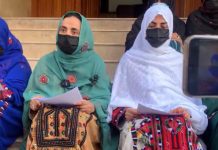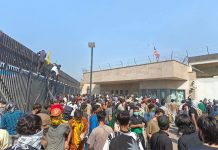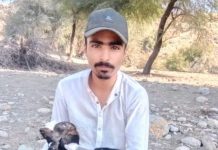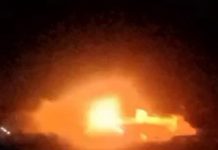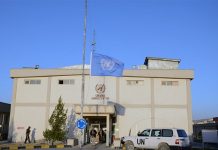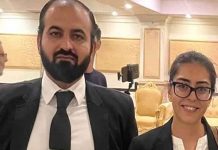The life of a 69-year-old bank manager at United Bank’s Hazarganji branch in Quetta changed forever after his son went missing on 13 February 2009. Known then as Qadeer Reki, the old man was looking forward to his plans after the retirement, which was only in few months’ time. However, disappearance of his son Jaleel Reki, a political activist, altered his future plans, and the pensioner was transformed into a seasoned activist. The Qadeer Reki turned into Mama Qadeer.
Around the time when Jaleel Reki was taken away allegedly by Pakistani secretive agencies, the disappearances of Baloch political activists were already rampant. However, a strong voice against these abductions was almost absent. The nationalist political parties had already faced the brunt of these abductions with some organizations losing their entire leadership. The “moderate” political forces of Balochistan had mostly opted for silence to avoid attracting the undue wrath.
In these conditions, Mama Qadeer along with some other victim families decided to take the lead themselves and raise voice against the abductions. Their campaign begun in July 2009, but a formal campaign group was launched on 27 September 2009. This organisation, named Voice for Baloch Missing Persons, was managed and run entirely by family members of Baloch missing persons, which is still the case.
VBMP’s token hunger strike proved to be one of the most successful political campaigns in Balochistan’s history. The makeshift camp pitched in front of Quetta press Club became symbol of VBMP’s movement and Mama Qadeer became the face of this campaign. From protests to taking part in TV talk shows Mama Qadeer presented the plight of family members of Baloch missing persons at every platform.
His activism created a stir both locally and internationally. The disappearances of Baloch missing persons begun to gain attention from international human rights organisations. But this also resulted in continuous threats, troubles and in some cases lucrative offers for Mama Qadeer. He was even guaranteed his son’s release if he stopped his campaign. His rejection to budge from his stance resulted in his retirement funds and pension payments being stopped. However, Mama Qadeer continued his activism.
But then on 24 November 2011, the bullet-riddled and tortured dead body of Mama Qadeer’s son Jaleel Reki was recovered. Many, like Jaleel Reki’s tormentors, thought this will be end of Mama Qadeer’s activism. However, the death of his son only acted as a catalyst, and he continued his activism with further passion.
Many accredit Mama Qadeer and VBMP’s activism for the 2012 visit of United Nation’s Working Group on Enforced or Involuntary Disappearances.
In 2013, under the leadership of Mama Qadeer the VBMP carried out a historical march from Quetta to Islamabad. Carrying tens of portraits, images and placards and documents meant to be submitted to the United Nations, the campaigners undertook an arduous and trying march on foot and walked all the way from Quetta to Karachi and then to Pakistan’s capital Islamabad.
Mama Qadeer says that he had promised his companions in 2009 that even if his son is released, he will continue his activism until last Baloch missing person is recovered. He has stayed true to his words and his activism has persisted to this date. The makeshift hunger strike camp continues without any disruption.
Now at the age of 81 years, Mama Qadeer is a frail man. He survives on medicines and the visits to hospitals are a regular occurrence. However, what has not changed is his activism and fervour to secure the recovery of Baloch missing persons. This week Mama Qadeer had to spent multiple nights in hospitals, however, he continued to return to his protest camp every day. He believes and vows that his death will be inside the protest camp.
Mama Qadeer’s activism is exemplary in every aspect, and it will not be an exaggeration to consider it as the most important and strongest aspect of current Baloch nationalist movement. Without his activism the Baloch nationalist movement or its recognition on international level would not have been the same.












